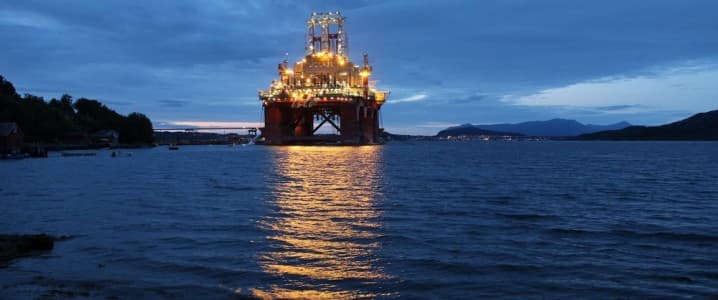Bad Weather Delays Equinor’s Arctic Oilfield Startup to Early 2025

The start-up of the Johan Castberg in the Barents Sea in the Arctic has been postponed to January or February 2025 from an initial launch date by the end of this year, due to bad weather conditions, Norwegian energy major Equinor said on Tuesday.
Johan Castberg, a large field in the Barents Sea, has estimated recoverable volumes of between 450 and 650 million barrels of crude oil. The resource base for developing the Johan Castberg field consists of the three oil discoveries: Skrugard, Havis, and Drivis.
The field will produce for 30 years, and at its peak, Johan Castberg will be able to produce 220,000 barrels per day (bpd) of crude oil, Equinor says.
Production will be carried out via a floating production, storage and offloading (FPSO) vessel, which was anchored on the field in September.
The FPSO has been hooked up to the subsea facility and the project is now in a final phase towards start-up, Equinor said today, but added that the start-up has been delayed by adverse weather conditions.
“We are now in the final phase of completion. The operations have been somewhat delayed by bad weather. Our plan is to start up Johan Castberg in January/February 2025,” said Geir Tungesvik, Equinor’s executive vice president for Projects, Drilling and Procurement.
Equinor and its partners in the field, Vår Energi and Petoro, have drilled so far 14 wells on the field, of which 12 are already ready for production, which is sufficient to bring the field to plateau production of 220,000 bpd.
“The field opens a new province for oil recovery and will be an important starting point for several opportunities in the Barents Sea,” Tungesvik said.
Norway expects its oil liquids production to rise by 5.2% next year from 2024, also thanks to Johan Castberg.
Yet, further exploration efforts and new discoveries would be crucial to slowing the expected decline in Norway’s oil and gas production in the 2030s, the authorities of Western Europe’s largest oil and gas producer have said in recent years.




